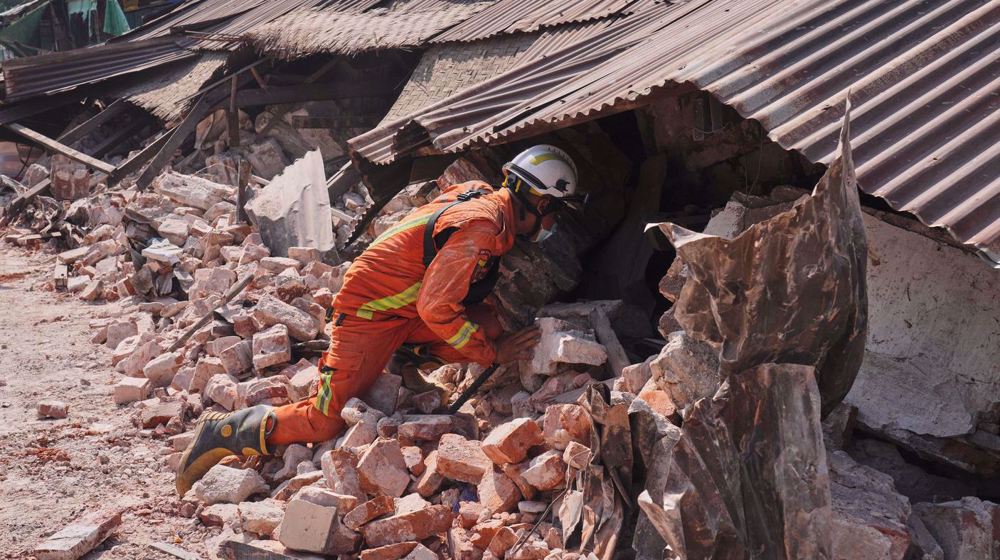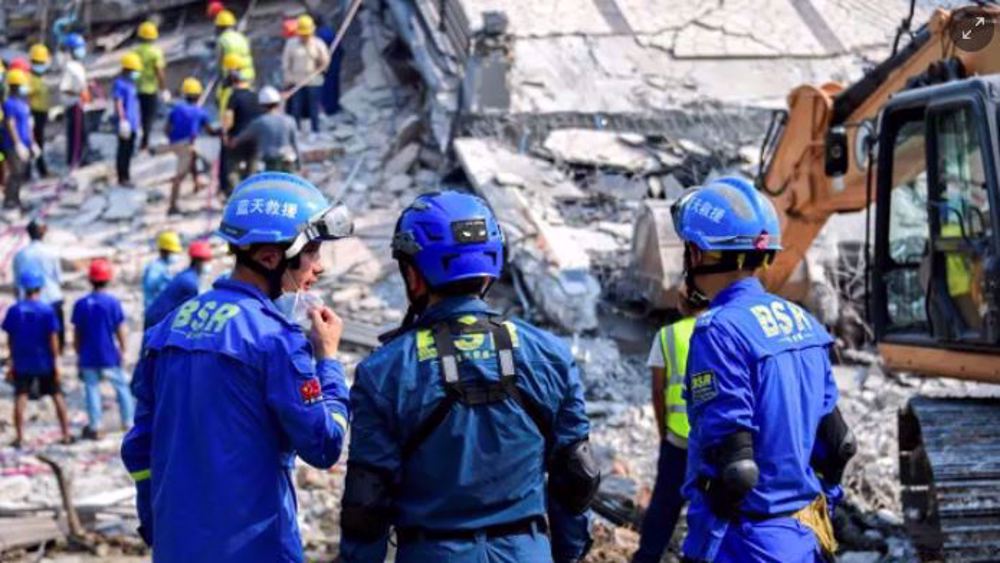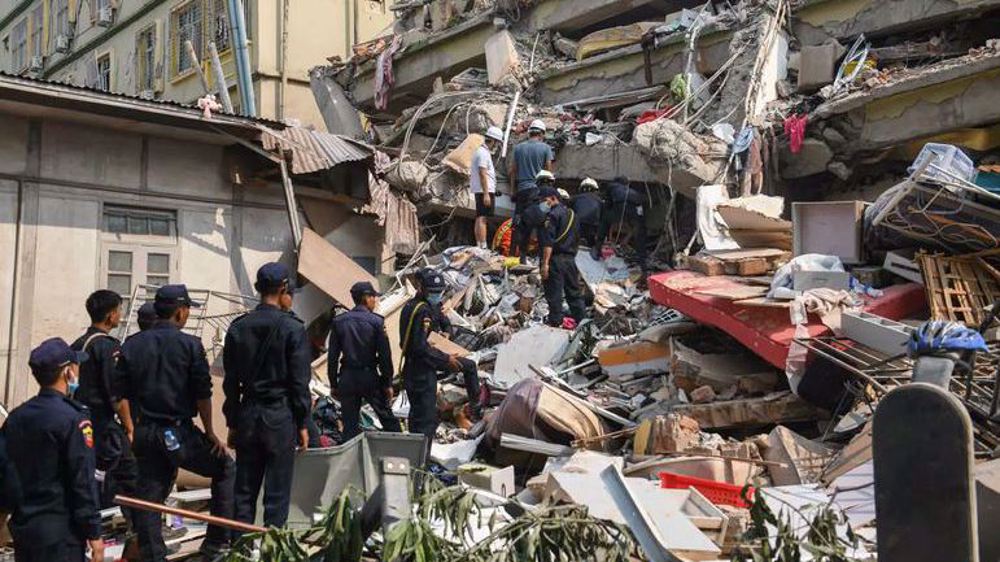Sri Lanka crisis could turn into bloodbath: Parliament chief
Sri Lanka’s parliament speaker has warned that the political crisis unfolding in the country could turn into a “bloodbath” on the streets unless the parliament is empowered to intervene and resolve the standoff between the president and the sacked premier.
“We should settle this through parliament, but if we take it out to the streets, there will be a huge bloodbath,” the legislative chamber’s speaker, Karu Jayasuriya, said on Monday.
Last week, President Maithripala Sirisena abruptly ousted the cabinet, suspended the parliament and appointed the man he had ousted from the presidency, Mahinda Rajapaksa, as the new premier, replacing Ranil Wickremesinghe.
Rajapaksa is a controversial Buddhist nationalist, who is said to be the most popular politician in the country. He is the same man against whom Sirisena and Wickremasingh formed a surprise coalition in 2015 presidential elections.
Howeve, Wickramasinghe views his ouster as illegal, seeking a chance to prove in parliament that he still commands a majority.
Jayasuriya further said he had urged President Sirisena to let the sacked prime minister prove his majority on the floor of the House.

The rift had been widening between Sirisena and Wickremesinghe in recent years over several issues, ranging from economy to relations with India.
Sri Lanka suffers power vacuum: sacked PM
In the meantime, Wickremasinghe demanded that the parliament be allowed to end the standoff.
“At the moment there is a vacuum, no one is in full charge of the country,” Wickremesinghe told reporters at his official residence. “That is why we want parliament summoned immediately to decide who enjoys the majority. I am still the prime minister who commands that majority.”
While he remained defiant at his official residence, his security guards were seen leaving the residence early Monday morning, Reuters reported.
The newly appointed prime minister said earlier that he will hold local council elections as well as general elections “as soon as possible.”
The parliamentary elections are not due until August 2020.
Several legislators loyal to the ousted prime minster have warned of street violence if the parliament is not summoned.

Standoff turns violent
Meanwhile, the standoff between supporters and opponents of the president’s move turned violent late Sunday night, when a security guard of former cabinet minister, Arjuna Ranatunga, opened fire on the crowd, who were trying to block Ranatunga's entry into his office.
A 34-year-old man was killed and two others were injured in the shooting, police said. It also said the bodyguard was arrested and an investigation was underway.
The former cabinet minister was also rushed from the scene by police commandos in a helmet and body armor.
President under pressure to end crisis
The European Union, the United States and India have called the appointment of a new prime minister “unconstitutional” and urged Sirisena to abide by the constitution.
US State Department spokeswoman Heather Nauert called on Sirisena “to immediately reconvene parliament and allow the democratically elected representatives of the Sri Lankan people to fulfill their responsibilities to affirm who will lead their government.”
Sources in diplomatic missions also said most foreign envoys had yet to send congratulatory messages to Rajapaksa.
China, however, sent a different message, saying Sri Lanka had “enough wisdom” to resolve the issue internally.
Foreign Ministry spokesman Lu Kang said Beijing was closely following the situation. “Of course, I have also reiterated that the basic principle of China's diplomacy is not to interfere in the internal affairs of other countries,” the official said.
It is up to Sri Lanka’s Supreme Court to decide if it was legal to fire Wickremasinghe. The case is yet to be brought before the top tribunal.
Many, however, say Sirisena has violated a 2015 constitutional amendment that diluted the powers of the president to prevent him from sacking any prime minister unless he had died, resigned or lost the confidence of the parliament.
His advocates, however, say Sirisena has pointed to another constitutional article that allows the president to appoint as prime minister any MP who, “in the president’s opinion,” is most likely to command the confidence of parliament.

Death toll from Myanmar quake rises to over 3,085

WHO warns Myanmar quake ‘top-level emergency’, seeks urgent funding

Iran voices readiness to help quake-stricken Myanmar, Thailand
Denmark's PM visits Greenland after Trump threat to seize it
Pezeshkian: If Muslim nations unite, enemies cannot oppress them
Hundreds of thousands of Gazans flee as Israel ‘wipes out’ Rafah
Trump tariffs spark global condemnation as markets crash
Russia blasts Trump’s 'unacceptable' threat of bombing Iran
VIDEO | Yemen shoots down another US drone
VIDEO | Israeli killers pursues Palestinians inside the 'Safe Zone'
VIDEO | Press TV's news headlines










 This makes it easy to access the Press TV website
This makes it easy to access the Press TV website